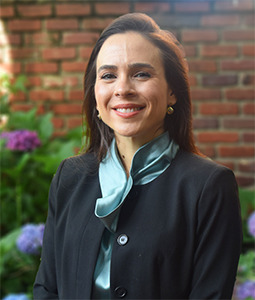Department of Sociology
Faculty and Staff Directory
Jennifer Augustine
| Title: | Professor & Undergraduate Program Director |
| Department: | Sociology McCausland College of Arts and Sciences |
| Email: | AUGUSTJM@mailbox.sc.edu |
| Phone: | 803-777-3123 |
| Resources: | Curriculum Vitae [pdf] |

Bio
Professor Augustine earned her doctoral degree from the University of Texas in Austin (2011), where she received training in social demography, family, education, and life course and human development. After completing her degree, she was a postdoctoral research associate at Rice University, where she acquired additional training in population health. Her first academic position was as an Assistant Professor at the University of Houston (2012-2014). In 2014, she joined the University of South Carolina. She currently is a Professor in the Department of Sociology at USC. She is also the founder and Director of FIRL: Family Inequality Research Lab.
Research
Substantive research interests: family and gender; work; education; social demography; life course and human development; population health; and inequality and stratification; as well as social policy, time use, and longitudinal research methods and methods of causal inference.
Department cluster: Population and Health; Inequalities and Institutions.
Research overview: Dr. Augustine’s research is aimed at describing and understanding inequalities in family life, with a particular focus on social class and gender. In doing so, she tends to focus on the various life course (e.g., timing of educational completion; health trajectories), demographic (e.g., marital and work status), and social psychological (e.g., role expectations, self-efficacy) aspects of mothers’ lives, and their connection to their and their children’s wellbeing. She studies wellbeing broadly, examining aspects of time-use, human capital, and health.
Current projects: Dr. Augustine is currently pursuing several projects including her project: Unequal experiences of mothers’ and fathers’ experiences of remote work. This multi-method project looks at remote work through a gendered lens by examining the disparate ways that mothers and fathers experience remote work, as well as its unequal benefits and costs. She also has current projects examining recent trends in mothers’ and fathers’ time in caregiving and housework, and social class differences in parents’ work conditions and their associations with inequality in mothers’ and children’s health and health-related outcomes.
Teaching
Dr. Augustine regularly teaches courses on family, education, and research methods at both the graduate and undergraduate level.
Specific courses include:
SOCY 305: Sociology of Families
SOCY 503: Families and Stratification
SOCY 557: Education and Inequality
SOCY 303: Undergraduate Research Methods
SOCY 720: Graduate Research Methods
Selected Publications
Augustine, Jennifer March, Jaeseung Kim, and Mina Lee. 2023. “Parents’ Flexible Work Arrangements and Developmental Parenting Time.” Journal of Family Issues.
Augustine, Jennifer March and Kate Prickett. 2022. “Gender Disparities in Increased Parenting Time during the Pandemic: A Research Note.” Demography 59(4), 1233-1247.
Prickett, Kate and Jennifer March Augustine. 2021. “Trends in Mothers Parenting Time by Education and Work from 2003 to 2017.” Demography 58: 1065-1091.
Augustine, Jennifer March. 2020. “Mothers’ Out-of-Sequence Post-Secondary Education and their Health and Health Behaviors.” Journal of Health and Social Behavior.
Augustine, Jennifer March, Kate E. Prickett, and Daniela Negraia. 2018. “Doing it All? Mothers’ College Enrollment, Time Use, and Affective Well-Being.” Journal of Marriage and Family 80: 963-974.
Augustine, Jennifer March and Daniela Negraia. 2018. “Can Increased Educational Attainment among Lower Educated Mothers Reduce Inequalities in the Skill Development of Children? Demography 55: 59-82.